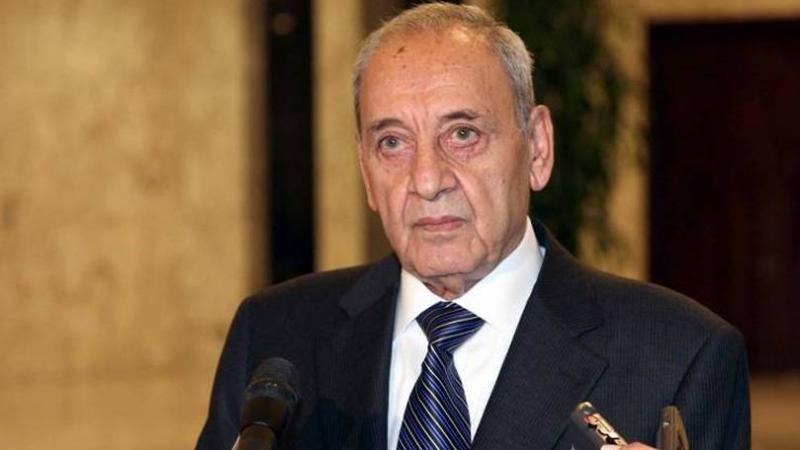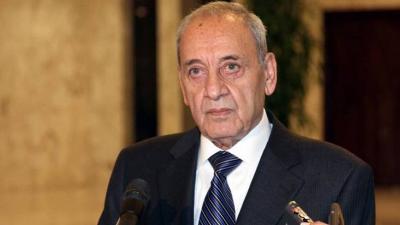Since their second meeting on July 1, the conditions of both President Michel Aoun and Prime Minister-designate Najib Mikati regarding the formation of a government have remained stagnant, with neither making any progress or concessions towards the other, nor reaching a compromise. The specifications for the government proposed by the Prime Minister-designate differ, if not contradict, those of the President, rendering any agreement non-existent. Both parties are preoccupied with the potential aftermath of the possible presidential vacancy more than with the tasks assigned to the government until the election of a new president. The passage of time marked by interruption and estrangement strengthens the belief that no government will succeed the caretaker government. However, they also confirm that Mikati will replace Mikati regardless of the election of a new president or if the country enters into its fourth vacancy for the presidency.
Perhaps due to doubts that a large number of political and constitutional dilemmas are about to arise, the parties are preparing to adapt to the upcoming phase. The available options are no longer sufficient to address these dilemmas that intertwine political, economic, and security issues. Nonetheless, they remain rigid in their conditions, whether regarding a government that will not be formed, or in how to deal with a resigned government that will experience for the first time in Lebanon's independent history an unprecedented but unusual situation: that one who is inherently in a state of vacancy will fill the void. A confined caretaker government, as stipulated by Article 64 of the Constitution, represents a temporary and short phase until a new government is formed, and the Constitution does not grant it the opportunity to exercise its own judgment for an extended duration, nor does it allow it to expand what is not permitted. It is bound to the limited and constrained scope of caretaker duties.
Recently, there have been rumors that, in preparation for a possible presidential vacancy if the formation of a new government becomes impossible, the decision-makers may think that the resigned government can expand beyond what Article 64 restricts to "caretaker" duties, as if it regains all the constitutional powers that its resignation stripped away, in addition to assuming the powers of the President.
The mere thought of expanding caretaker duties to a wider scope inevitably leads to the rehabilitation of the resigned government as if it had not resigned. The fact is that the most challenging issue for Mikati's government is that it did not resign at the will of its leader to retract its resignation one way or another, but is considered resigned by law immediately upon the election of a new parliament and the commencement of its term, as stipulated by Article 69.
So far, unless something occurs that rearranges the positions and communication between Aoun and Mikati, there are no speculations other than that the resigned government is the upcoming reality, with little interest in forming a new government for worse scenarios that may arise. This is not just a potential constitutional debate. With the approach of the constitutional deadline for electing a president, starting from zero hour on September 1, several steps that are constitutionally obligatory are supposed to follow: the Speaker of the Council should issue a call to elect a new president of the republic, specifying the time of the session. Failure to issue the call by October 21, which is ten days before the end of the current president's term, obliges the Parliament to convene automatically without an invitation from its President, who then loses his constitutional right to issue it. It is unprecedented in the history of Lebanese parliaments that any of the successive speakers hesitated to exercise this constitutional authority, and there is no justified reason that would prevent it. Generally, the issuance of the call and the scheduling of the first session is associated with the end of the first month of the constitutional period.
As for the source of the potential debate that is likely to arise during this phase after the commencement of the constitutional period, it revolves around the moment when the Parliament transforms into an electoral body that cannot legislate or hold a session except to elect the president. There are multiple perspectives regarding this aspect. Article 75 of the Constitution states that the Parliament convened to elect the president is deemed an electoral body not a legislative one and "is required to immediately commence the election of the head of state without discussion or any other work."
Speaker Nabih Berri has a viewpoint regarding his exercise of this authority, which is that the Parliament meeting in the specified session to elect the president becomes an electoral body that cannot legislate or engage in any other work. However, adjourning the session without electing a president, whether due to the lack of a quorum or if it leads to its disruption in the next session after the first one, does not prevent the Parliament from reconvening the next day in a session to approve laws, thereby regaining its full legislative role. Thus, according to Berri, in implementing what Article 75 calls for, the Parliament is restricted to an agenda of electing the president during the session designated for this purpose only, and it cannot be deprived of its legislative powers at any point before its meeting or after, if the election of the head of state continues to be impossible, even within the constitutional deadline.
Although there is no precedent in the past for the joint body of the Parliament to convene a legislative session during the constitutional period for electing a president, limiting its conduct during the constitutional period to sessions for electing the president, there is opposing opinion consistent with the prevailing custom that the Parliament loses its right to legislate once it enters the constitutional period. The point of contention regarding the interpretation of Article 75 has various reasons, the most prominent of which may be that successive parliaments since independence have only required two appointments for electing a president, which occurred in the second instance, while President Michel Sleiman was elected in the 20th session, and President Michel Aoun in the 46th session in 2016. Another factor intertwined with the political and constitutional aspect was seriously raised during the last presidential vacancy (2014-2016) when major blocs, most of them Christian, refrained from participating in legislative sessions unless preceded by filling the vacancy in the office of the presidency.




